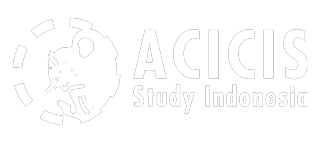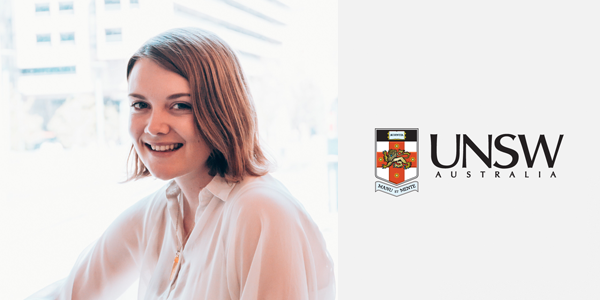Eden Gillespie is a participant in the 2017 Journalism Professional Practicum from the University of New South Wales. Eden is studying a Bachelor of International Studies and a Bachelor of Media (Communications and Journalism). Eden received a $3,000 New Colombo Plan Mobility Grant to support her participation in this program.
Q: Why did you decide to undertake the ACICIS program?
When I saw that ACICIS was offering the chance to partake in a journalism internships overseas, I knew that it’d be a once-in-a-lifetime opportunity. The opportunity to gain not only experience in my desired profession but also overseas, living in a foreign country, was too good to pass up. Having this program on my resume is a huge advantage but even more, it’s been a huge personal growth process. I’ve met so many like-minded students and formed very strong friendships on this program as well.
Q: How will the Professional Practicum benefit or influence your future career?
I now have a basic understanding of Indonesian as well as Spanish which boosts the chances of working overseas as a foreign correspondent or freelancer. I’ve also been exposed to a different culture and worked in a bilingual office. I’ve met local and foreign journalists and the networking opportunities in this program have been amazing. Being on the field as a journalist has been one of my favourite things about the program. Interns aren’t usually given the chance to write and report on the field, but here in Indonesia there are many opportunities to get involved.
Q: What organisation will you be interning with? (Explain your roles and responsibilities)
I interned at Forbes Indonesia where I attended press conferences and media events but also got a first-hand insight into the editorial operation of the magazine. I helped proofread, pitched ideas for the magazine and was flown to Bali to report on two of my story ideas. My experience at Forbes Indonesia has been incredible and has given me the chance to bolster my journalistic skills such as writing, proofreading and interviewing.
Q: How have you found the work culture of your host organisation? How is it different to work experience in Australia?
Working at Forbes Indonesia, the majority of your colleagues will be Indonesian and will spend most of the day communicating in Indonesian. Getting a handle on some basic Indonesian will help you to make the most of your time here, but it isn’t essential as everyone speaks English and writes in English. The Indonesian concept of ‘rubber time’ isn’t as obvious as Forbes Indonesia, you’ll still be expected to work average working hours and meet deadlines. Though your colleagues will be very hospitable and keen to show you Indonesian culture. A number of times I joined my work friends at the local warungs and restaurants.
There’s a much bigger opportunity to be published and report on the field in Indonesia. Bringing ideas to work is essential and made my experience extremely enjoyable. Most of the time, people won’t give you tasks to do, so it’s up to you to be proactive and make the most of your internship.
Q: What do you like to do in your spare time in Indonesia?
On the weekend I love to escape the chaos of the macet (traffic) with Car-Free Sunday. On Car-Free Sunday you’ll see people walking their dogs, rollerblading, busking and running groups lining the roads. I also love trying the local food – Gado Gado and Soto Ayam are a must. Even little things like talking to local people and taxi drivers has been a great way to learn about the culture of Indonesia and the secret gems that the city offers.
For a quiet weekend, hitting up the local movie theatre is a great activity. For only $3-6 AUD you’ll feel like royalty with comfy seats, a huge screen and a seriously fancy cinema experience.
Q: Would you like to return to work in Indonesia again in future?
Definitely. There are so many interesting things happening in the city and the ins and outs of Indonesian politics is a dream for any aspiring journalist. Stories are everywhere because everything is new. It’s an exciting place to be for journalism and I’d be open to any opportunities to work in Indonesia in the future.
Q: Favourite Indonesian food?
Gado Gado is delicious but it’s hard to get past a good Mee Goreng. Any dish that has tempe and tahu (tofu) gets a tick of approval as well.
Q: Favourite Indonesian word/phrase?
Macet (traffic). You’ll hear the word on a daily basis living in Indonesia and the fastest way to bond with a taxi driver is through the phrase ‘Ah, macet ya?’.
Q: Favourite place to eat?
There’s this food chain called Soto Gebraak where they’ll bang the floor/ tables every few minutes. When I asked why this happens, people said “it makes the restaurant special”. I’ll never understand the logic, but it’s a really interesting addition to eating out and you have to experience it.
Q: What places in Indonesia have you visited during your practicum so far?
Anyer Beach
Bali
Cisarau
MONAS
Indonesian museums and art galleries
The Indonesian government house
Eden’s Published Works:
News Articles
Blog Posts
- A Day in the life: Jakarta the big Durian
- Car Free Sunday is not Jakarta’s ‘Pollution Solution‘
- Female Murder rates are at an emergency high in Indonesia
Facebook Posts
- Check out Eden Gillespie’s Facebook Page
Instagram Posts
- Check out Eden Gillespie’s Instagram account.


